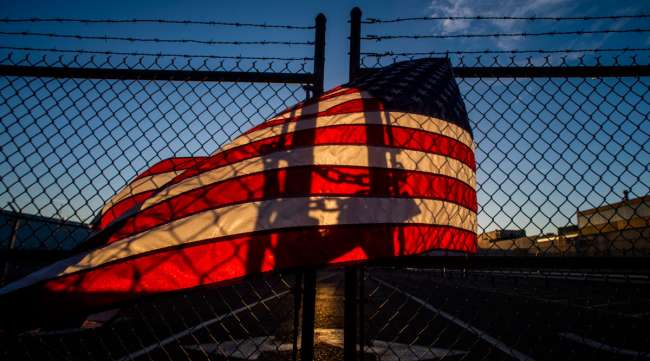The Blade (Toledo, Ohio)
Virus Exposes Supply Chain Problems Across Industries

[Ensure you have all the info you need in these unprecedented times. Subscribe now.]
The Big Three automobile manufacturers halted vehicle production in March, and restarting might not be as easy as flipping the switch on the assembly lines.
The auto industry is just one of many whose supply chains have been impacted by the coronavirus outbreak. Experts say shortages of personal protective equipment in hospitals and toilet paper on grocery store shelves can be traced, at least in some ways, to the global supply chains.
Even in American-made cars, a large percentage of the parts are made by other companies. Bowling Green State University professor and department of management chair William Sawaya has concerns about small and medium parts producers.
“A very real danger for the auto supply chains when they start up is whether all the companies will still be there to produce parts,” Sawaya said. “Will they have laid people off or closed up? There might be some little plant in Ohio or Mexico making the same parts for multiple manufacturers. I worry some of those might go out of business.”
With most Americans living under stay-at-home orders, demand for cars is following the downward trend of oil and gasoline. Paul Hong, University of Toledo professor of supply chain management and Asian studies, said many auto companies and manufacturers could be in trouble.
“The strong ones will survive and will take over the vulnerable,” Mr. Hong said. “On the other hand, in these times, there are a lot of innovative activities. This kind of crisis is causing enormous hardships, but after that comes great innovation. I expect a lot of hardship, but after COVID-19, these tremendous innovations will come out and change the landscape.”
Supply chain issues also are at the forefront of the global shortage of PPE for medical personnel and first responders on the front lines of the coronavirus crisis. Nurses and other hospital staff across the U.S. have been forced to reuse masks and rely on everyday citizens to donate supplies such as face shields and gloves.
This week, Maryland Gov. Larry Hogan secured 500,000 coronavirus test kits from South Korea. Hong said tests and PPE are low-tech, and production is routinely outsourced to other countries.
“We don’t have the facilities actually making this stuff,” he said. “In order to win World War II, a lot of [U.S.] auto companies switched their lines that way. But masks and supplies are small items. We don’t know what long-term demand will be. I don’t know if manufacturers see it, so you’re not seeing them switching.”
Another issue is most companies that do produce PPE can only produce a certain amount at a time. Sawaya, while not an industry insider, did say the capacity issue is real.
“They buy enough material and machinery to make however many masks per month,” he said. “If there’s a huge spike in demand or things get shut down, they can’t just suddenly produce millions more units per month on the same machinery.”
The food supply chain is also starting to feel the effects. The U.S. is mostly self-reliant when it comes to food sources, but consumer stockpiling and sinking demand from the restaurant industry are leading to shortages of some food products.
Making matters worse is meat processing plants shutting down as more workers become infected with the virus.
“With beef or pork, we do not have shortages, but the production activity stopped,” Hong said. “Gradually, the government I think will allow them to engage in production. Food supply will normalize a lot quicker than manufacturing.”
Want more news? Listen to today's daily briefing:




